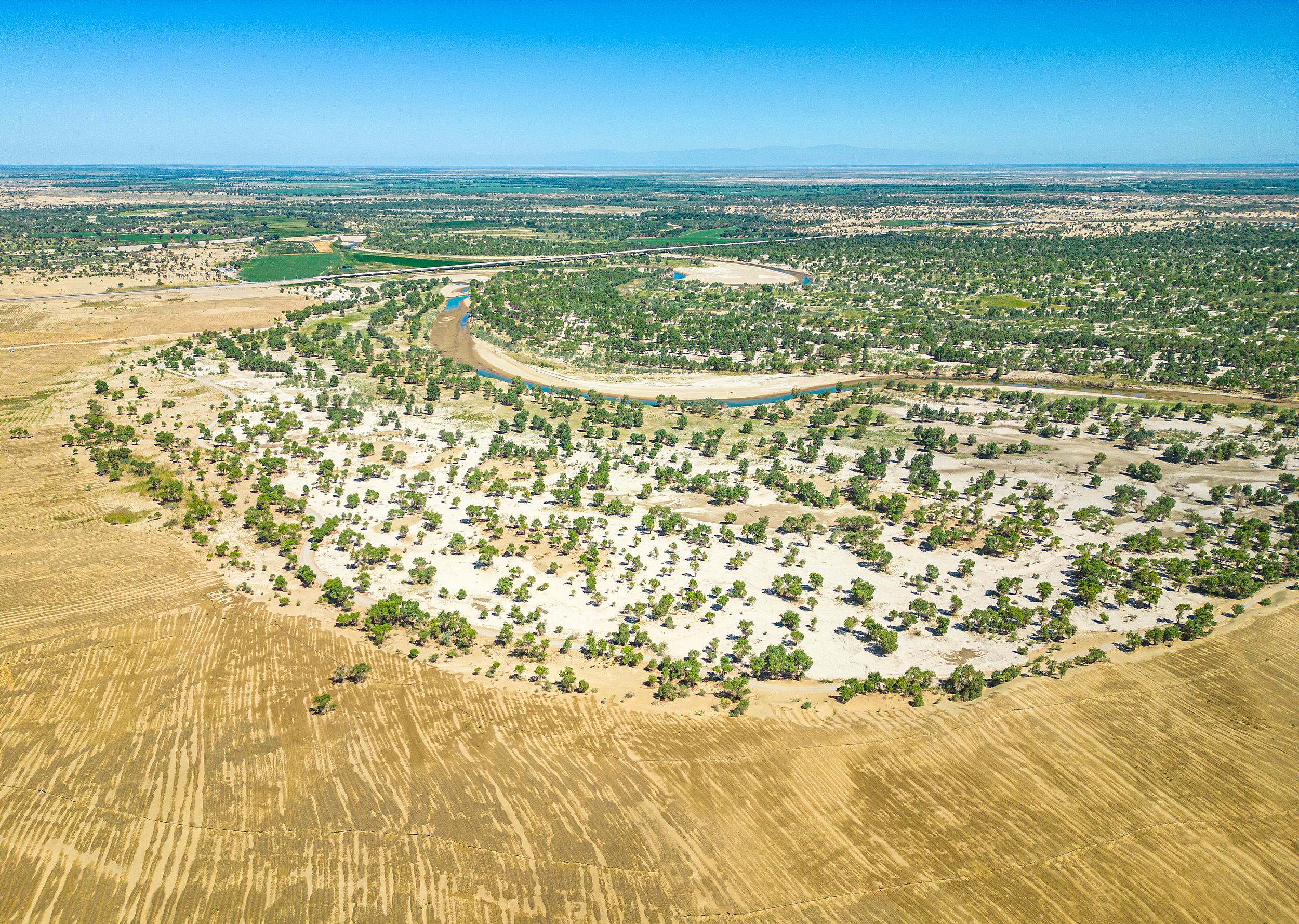Growing Green Gold in Desert

In Xinjiang Uygur autonomous region in northwest China, carbon dioxide is being used to grow green wormwood and apocynum, which are used in Chinese herbal medicines, driving economic growth. This demonstrates the significant progress made in the region's green development and the achievement of a harmonious balance between human activities and nature.
Turning waste into treasure
Xinjiang is also growing tropical fruits such as the banana and guava. They are being cultivated in a greenhouse gas reduction laboratory, a collaborative effort between the Xinjiang Qinghua Energy Group, a company specializing in coal-to-natural gas production, and other organizations.
In the process of synthesizing natural gas from coal, a large amount of carbon dioxide and other greenhouse gas are released into the air. In recent years, a variety of carbon emission reduction technologies are being used by the coal-to-natural gas industry to lower greenhouse gas emissions and use coal efficiently and in an environment-friendly way.
The carbon dioxide produced during the coal-to-natural gas process is transported to the lab and used to enhance photosynthesis in plants such as the banana and tomato. Additionally, the lab also uses the carbon dioxide to cultivate microalgae, which are then converted into biodiesel. This biodiesel is used for improving saline land soil.
"Moreover, other byproducts generated during the process, such as liquid ammonia, are utilized to produce ammonium sulfate, a high-value commercial product, through an efficient and low-energy consumption process called ammonia desulfurization," Xinjiang Qinghua's deputy manager Yin Wenyue said,"This process uses sulfur from coal. Coal cinder can also be repurposed as building materials, improving coal conversion efficiency."
Turning deserts green
In a photovoltaic (PV) base in Xinjiang's Shihezi city, the mugwort, an aromatic plant, grows luxuriantly, as high as one meter. The greenery presents a vivid contrast to the arid desert in the distance.
The PV base, located on the edge of the desert, benefits from the ample sunlight. In December 2023, a 3GW PV project reached its full capacity and was successfully connected to the grid. This installation is capable of generating approximately 1.5 billion kWh of clean electricity annually, which is equivalent to reducing greenhouse gas emissions produced by the combustion of 500,000 tons of standard coal.
The panels collect solar energy and under their shadow, plants grow, their roots fixing the sandy soil. As the temperature here varies greatly between day and night, water vapors are formed and condense, dripping down the PV panels to water the soil underneath. People raise the height of the PV columns and leave wider space between them to plant cash crops such as wormwood, sea buckthorn, wolfberry, and jujube.
Up to now, the PV base has provided more than 500 free mu (33.33 hectares) of land to farmers, which generates about 600 kg wormwood per mu, and the income per hectare is about 22,500 RMB.
Turning "grass" into gold
In a county called Weili, large tracts of wild apocynum grow in the desert on both sides of the Tarim River.
Jiang Li, deputy head of Weili, said the apocynum, with its well-developed root system, is drought-resistant, has cold tolerance, and is resilient to the wind. It plays an important role in preventing wind erosion, fixing the sand, and improving the soil quality in desertified areas.
Its seeds can be used for medicinal purposes, its flowers for honey production, its leaves as tea, and its bark and straw as fiber, highlighting its high economic value. Jiang said that the county plans to turn more than one million mu of desert land into apocynum fields to boost the development of the apocynum industry.
Apocynum is planted in spring, its leaves are picked in summer, and seeds collected in autumn. Its fruit is harvested in winter. These processes provide employment for more than 8,000 people from the surrounding areas and have become an important means for local farmers to increase their income.






